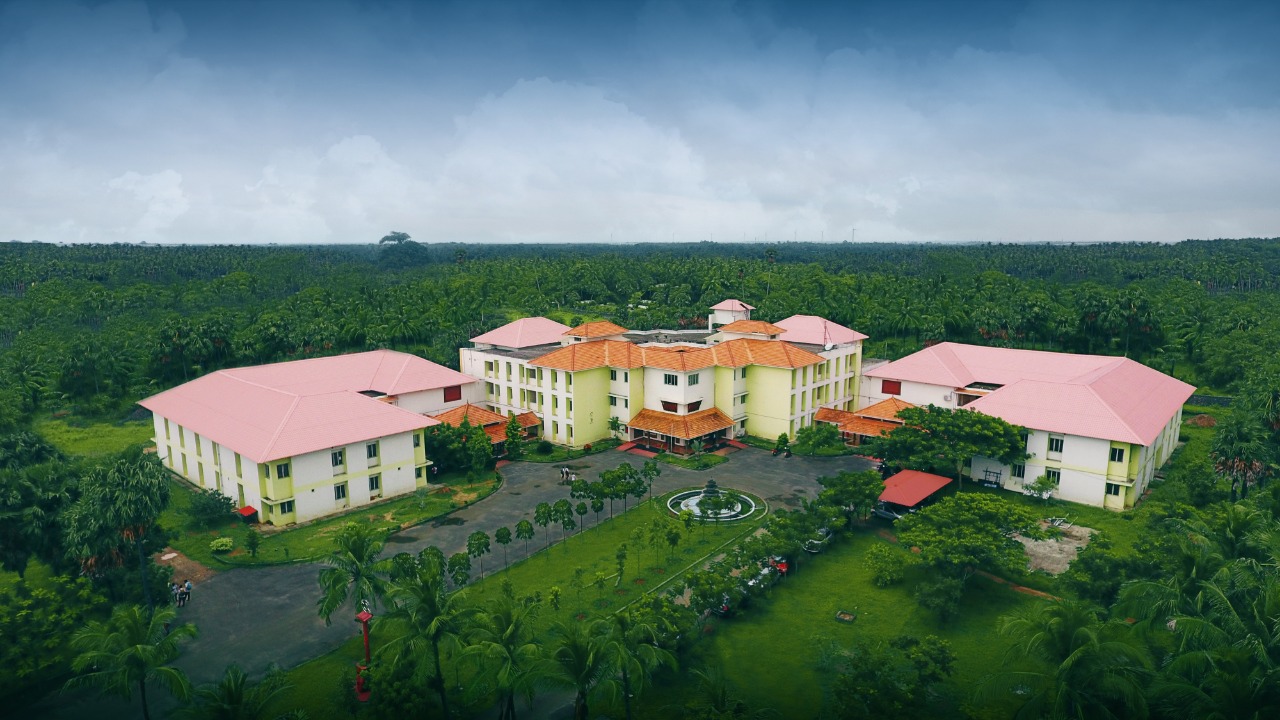
The Department of Electrical and Electronics Engineering at Ahalia School of Engineering and Technology, Palakkad was established right from the inception of the college, since July 2012. The department offers B.Tech. Degree in Electrical & Electronics Engineering approved by AICTE, New Delhi and affiliated to Dr. A. P. J. Abdul Kalam Kerala Technological University, Trivandrum. Electrical Engineering forms the application of the laws of physics governing electricity, magnetism and light to develop new technologies in helping mankind. The Electrical Engineering discipline has its esoteric side, with electrical engineers being involved in the generation, protection, transmission, distribution and application of electrical energy. However, on the mundane side, they are also involved in that aspect that lights our world. Many scientific fields depend on electrical engineers for their design, analysis and maintenance. Engineers who specialize in Electrical and Electronics engineering are concerned with the design and analysis of controllers, power converters that eventually help in obtaining the desired characteristics of electromechanical systems. Today, Electrical engineering has a wide reach in all spheres of technology.
Vision
To be a center for academics and research to produce competitive electrical engineers useful to the society
Mission
To impart students with strong theoretical foundation and practical skills
To provide a supportive environment to facilitate competitive self-learning
To inculcate interpersonal skills, ethics and team work
To nurture and promote innovative ideas
Programme Educational Objectives (PEOs)
PEO 1 – Graduates will utilize their strong foundation in mathematics, science & engineering and outshine in their career.
PEO 2 – Graduates upgrade their knowledge in the field of electrical engineering through lifelong learning and provide solutions for interdisciplinary problems and societal issues.
PEO 3 – Graduates will impart professional and ethical attitude, effective communication skills & teamwork skills and apply their ability to be a successful professional.
Programme Outcomes (POs)
PO 1: Engineering knowledge: Apply the knowledge of mathematics, science, engineering fundamentals, and an engineering specialization to the solution of complex engineering problems.
PO 2: Problem analysis: Identify, formulate, review research literature, and analyze complex engineering problems reaching substantiated conclusions using first principles of mathematics, natural sciences, and engineering sciences.
PO 3: Design/development of solutions: Design solutions for complex engineering problems and design system components or processes that meet the specified needs with appropriate consideration for the public health and safety, and the cultural, societal, and environmental considerations.
PO 4: Conduct investigations of complex problems: Use research-based knowledge and research methods including design of experiments, analysis and interpretation of data, and synthesis of the information to provide valid conclusions.
PO 5: Modern tool usage: Create, select, and apply appropriate techniques, resources, and modern engineering and IT tools including prediction and modeling to complex engineering activities with an understanding of the limitations.
PO 6: The engineer and society: Apply reasoning informed by the contextual knowledge to assess societal, health, safety, legal and cultural issues and the consequent responsibilities relevant to the professional engineering practice.
PO 7: Environment and sustainability: Understand the impact of the professional engineering solutions in societal and environmental contexts, and demonstrate the knowledge of, and need for sustainable development.
PO 8: Ethics: Apply ethical principles and commit to professional ethics and responsibilities and norms of the engineering practice.
PO 9: Individual and team work: Function effectively as an individual, and as a member or leader in diverse teams, and in multidisciplinary settings.
PO 10: Communication: Communicate effectively on complex engineering activities with the engineering community and with society at large, such as, being able to comprehend and write effective reports and design documentation, make effective presentations, and give and receive clear instructions.
PO 11: Project management and finance: Demonstrate knowledge and understanding of the engineering and management principles and apply these to one’s own work, as a member and leader in a team, to manage projects and in multidisciplinary environments.
PO 12: Life-long learning: Recognize the need for, and have the preparation and ability to engage in independent and life-long learning in the broadest context of technological change.
Programme Specific Outcomes (PSOs)
PSO 1 – Graduates will apply the knowledge of electrical engineering to design, analyze and implement solutions for technical challenges in the industry.
PSO 2 – Graduates will apply modern engineering tools to device innovative and efficient methodology to solve electrical engineering problems.

